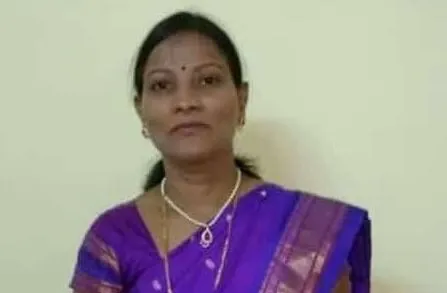I had to fight patriarchal society to train fathers
This week, Sunita Pardeshi, an Anganwadi supervisor, shares the story of how she had gone out of her way to train the fathers on equal parenting and the challenges she faced on the way.
I am Sunita Pardeshi, a 51-year-old supervisor at an Anganwadi in Karmad area about 25 km from Aurangabad district in Maharashtra’s Marathwada region. I have been working in the field of early childhood development for the past 28 years. I started as Anganwadi Tai and rose up to the post of supervisor. About 30 to 35 Anagnwadis come under mine in Aurangabad.
Anganwadis started by the Indian government in 1975 as part of the Integrated Child Development Services (ICDS) program to combat child hunger and malnutrition. Maharashtra has 1,08,005 Anganwadi / mini anganwadi centres and around 2 Lakh Anganwadi workers/helpers and Mini-Anganwadi Workers.
In 2018, I appealed to fathers of newborns to increase their participation in early childhood development (ECD) and was ready to train them. Only six fathers turned up. But I did not give up and went on communicating with fathers, and families and making them realise the importance of a child’s upbringing in the early stages and their participation in the process.

Sunita Pardeshi
It was a new idea in rural areas. No one was ready to understand it because men had not seen other men take care of a baby. It was always assumed to be a mother’s job. Also, age-old traditions, patriarchal systems and elders in the family too were not in the favour of the idea.
So, I personally started visiting villages and approaching men to talk. They would obviously ridicule me. But one or two would have curiosity about the topic. Then with those couple of fathers, I showed them a brain-wiring game. This shows how a child’s brain develops in the first 1000 days and both the parent’s participation in the growth is a must. Slowly, the number grew and men started taking a keen interest in the workshops and training.
Eventually fathers started asking for training in some villages on their own. Even during the COVID-19 pandemic, our work did not stop. The child needs equal love from both the parents in the growing up years, proper nutrition and nurturing. The fathers were extremely happy about their participation. This was something new for them and valuable too.
Today, 300 fathers have taken training under me and implemented their learning child’s growth along with their mothers. But it was no miracle. I had to put in so many efforts to convince the patriarchal society, fight the misconceptions and train the male parents.
Edited by Affirunisa Kankudti






